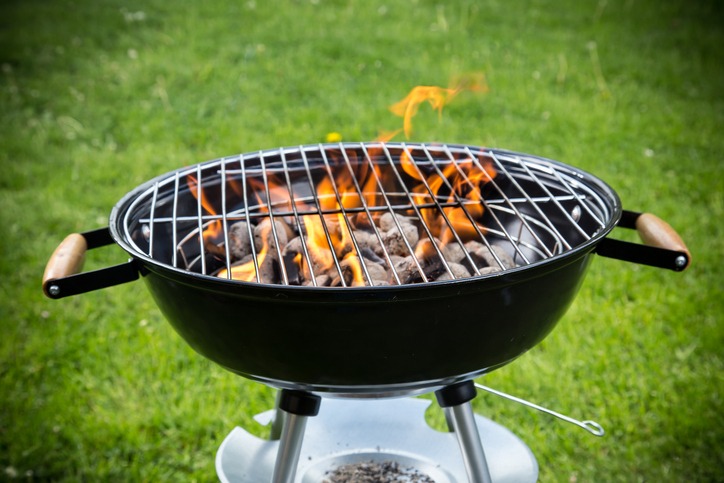Regarding barbecuing, the question of fuel can spark intense debate. Some BBQ enthusiasts swear by the smoky flavour imparted by charcoal. In contrast, others are devoted to the convenience and control of propane or natural gas, and still, others extol the virtues of wood. It can be overwhelming as you stand in your local bbq store, staring at various choices. Let’s delve into the world of BBQ fuel types and discover which one suits your grilling needs.
BBQ Fuel Types
When you think of barbecue, what is the first image that pops into your mind? Is it the smoky aroma wafting from a pile of charcoal? Or is it the quick ignition of a propane grill? Maybe it’s the authentic flavour from a wood-burning grill? All these fuels have their unique characteristics and usage methods. The fuel you choose can greatly influence the taste, temperature control, and overall grilling experience.
Before making an informed decision, it’s crucial to understand the different types of fuel, their pros and cons, and how they can affect your barbecue. The most common types of BBQ fuels are charcoal, propane, natural gas, and wood. Each has advantages and drawbacks, and your choice mostly depends on your preferences and needs.
Importance of Choosing the Right BBQ Fuel
The right fuel can make or break your barbecue. The flavour, cooking time, and even the environmental impact can vary greatly depending on the kind of fuel you use. The wrong choice can leave you with a lacklustre meal, wasted time, and unnecessary expenses.
Choosing the right fuel also extends the lifespan of your BBQ grill. Some grills are designed to handle specific fuel types, and using an incompatible one can cause damage. For instance, a grill designed for propane might not withstand the high temperatures produced by charcoal. Check out what each type of fuel has to offer here:
Charcoal: Pros & Cons
Charcoal is a classic BBQ fuel that many grillers swear by. It produces a high heat ideal for searing and imparts a distinct smoky flavour that’s hard to replicate with other fuels. Charcoal is also widely available and relatively inexpensive.
However, charcoal has its downsides. It takes longer to heat up than gas, and controlling the temperature can be tricky. Charcoal also produces more smoke and ashes, which means more cleanup after your BBQ. Additionally, charcoal is not the most eco-friendly option as it releases more carbon dioxide into the atmosphere than gas.
Propane: Pros & Cons
Propane is a popular choice for many grillers thanks to its convenience. It heats up quickly, maintains a consistent temperature, and is easily controlled. Propane tanks are also easy to replace or refill at your local bbq store. However, propane doesn’t provide the same smoky flavour as charcoal or wood. It’s also more expensive than charcoal, and you’ll have to keep an eye on the gas level to avoid running out in the middle of a BBQ.
Natural Gas: Pros & Cons
Natural gas is another convenient option. Like propane, it heats up quickly and offers easy temperature control. But unlike propane, you won’t have to worry about running out of fuel as natural gas is usually connected to your home’s gas supply. The downside to natural gas is that it requires a permanent connection, meaning your grill’s location will be fixed. It also doesn’t impart the smoky flavour associated with charcoal or wood.
Wood: Pros & Cons
Wood is the way to go for those seeking an authentic BBQ experience. It imparts a unique, smoky flavour that varies depending on the type of wood used. It also produces high heat, perfect for searing. On the downside, wood can be harder to source and more expensive than other fuels. It also takes skill to control the temperature, and like charcoal, it requires more cleanup.
Comparing BBQ Fuel Types
Each BBQ fuel type has its merits. Charcoal and wood offer a smoky flavour and high heat but require more effort to control and clean up. Propane and natural gas provide convenience and easy temperature control but lack authentic BBQ flavour. Your choice will depend on your priorities. Charcoal or wood might be your best bet if the flavour is paramount. If convenience and control are more important, consider propane or natural gas.
How to Choose the Best Fuel for Your BBQ
Choosing the right fuel for your BBQ depends on several factors. Consider your budget, flavour preferences, grilling skills, and environmental impact. It’s also important to consider your grill type, as some are designed to work best with certain fuels. Take time to experiment with different fuels. That will allow you to discover which suits your preferences and grilling style. Feel free to ask for advice from fellow grillers or staff at your local bbq store.
Choosing the right BBQ fuel is a critical decision that can greatly affect your grilling experience. By understanding the pros and cons of each fuel type, you can make an informed choice that suits your needs and preferences. Whether it’s the smoky flavour of charcoal or wood or the convenience of propane or natural gas, the right fuel can elevate your BBQ to new heights. So next time you’re in your local bbq store, you’ll know what to reach for. Happy grilling!
